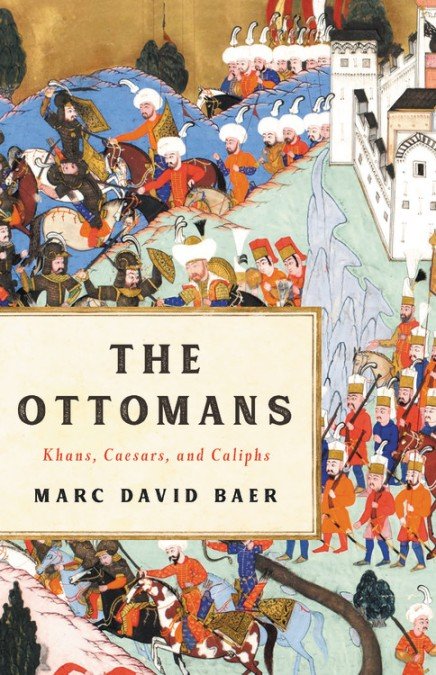The Ottomans by Marc David Baer
/The Ottomans: Khans, Caesars, and Caliphs
By Marc David Baer
Basic Books, 2021
Marc David Baer, professor of International History at the London School of Economics and Political Science, seeks in his new book The Ottomans: Khans, Caesars, and Caliphs, to tell the story of “the unacknowledged part of the story the West tells about itself” - the story of the Ottoman Empire, long the bête noir of Christian historiography.
It’s an immense subject, one that dwarfs even the 500 pages of Baer’s book, and the first note that will likely stop many readers will be the mention of “Caesars” in the title. Khans and caliphs, sure, but what have thoroughly Western caesars to do with this famously Eastern, Muslim, and generally nefarious bogeyman that flourished for hundreds of years, captured Constantinople in 1453, and only came to a tottering end as a shadow of its former self, in the fires of the First World War?
“Although headed by Muslims, the Ottoman Empire was very much a European empire,” Baer writes. “Centuries of conversion, Islamisation, and incorporation of Christians and Jews into the empire meant that the Ottoman legacy was and still is felt across Europe, Turkey, and the Middle East today.” He tells the story of a sprawling, polyglot empire that was by no means an isolated entity - and by no means a black-and-white enemy either.
Inevitably in books like this, the narrative shoals for long, wonderful stretches on personal stories. Ottoman history provides no shortage of larger-than-life homicidal maniacs whose stories make for very colorful reading. Readers of course meet the Mongols in these pages, and also such bejeweled killers as Selim I and Murad I. They also meet holy men and charlatans, mighty merchants and complicated figures like Suleiman II, who, when raised to the sultanate unexpectedly, at first refused to leave the sanctuary of the harem. “Breaking down from decades of anxiety about this moment,” Baer writes, “he asked whether the officials summoning him could understand what it was like to spend a life in terror, how ‘it is better to die at once than to die a little each and every day,’ and began to cry.” (Lacking proper dress for the occasion - who doesn’t occasionally forget to pack one’s sultan’s robes? - he went to his enthronement wearing the borrowed robe of a court eunuch).
The prominence of all these personalities, so busy bustling about killing their fathers, their uncles, their younger brothers, and all their young brothers’ male children, represents a canny narrative choice; it keeps Baer’s book running along in an entirely enjoyable reading experience and gives readers a series of faces to put on all the social and economic eras that unfurl in the course of the story.
And throughout, the key point is to question settled perspectives. As Baer repeatedly emphasizes, perceptions shape how histories are written:
History is used for political ends whenever Greek donors endow university chairs in ancient, Byzantine, and modern Hellenic or Greek studies that ignore that the Ottomans ruled what is today Greece for over five hundred years, or when the Turkish Republic endows chairs in Ottoman studies that gloss over the significant inheritance of Byzantine and Greek peoples, institutions, and attitudes. The way we remember the past would look quite different if we instead referred to both the Byzantines and the Ottomans as Romans, which is how they viewed themselves.
Quite different, yes, although not necessarily more accurate (how people - or peoples - view themselves being interesting but not at all the final word, after all), but in a book as consistently fascinating as The Ottomans, all perspectives end up being food for thought.
Steve Donoghue is a founding editor of Open Letters Monthly. His book criticism has appeared in The Washington Post, The American Conservative, The Spectator, The Wall Street Journal, The National, and the Daily Star. He writes regularly for The Boston Globe, the Vineyard Gazette, and the Christian Science Monitor. He’s the Books editor of Big Canoe News in Georgia, and his website is http://www.stevedonoghue.com.
